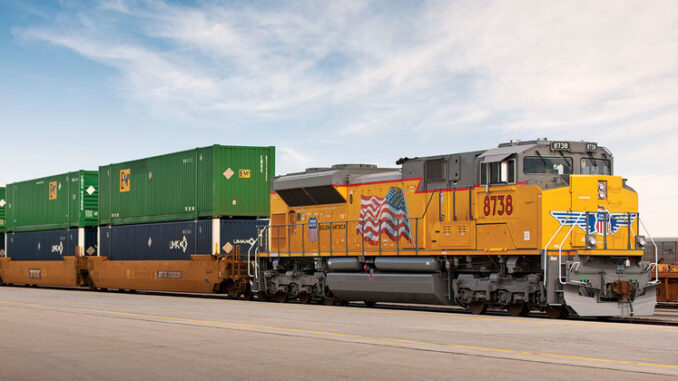
Union Pacific Railroad last month said it will start using a higher biodiesel blend in locomotives it acquired from Wabtec.
Officials said the new collaboration helps Union Pacific increase the percentage of low-carbon fuels consumed to 10 percent of its total diesel consumption by 2025 and 20 percent by 2030.
“Increasing the use of renewable diesels and biofuels currently represents the most promising avenue to help Union Pacific meets its environmental goals,” said Beth Whited, Union Pacific’s Executive Vice President – Sustainability and Strategy. “We want to drive emissions down as quickly as possible, and we believe this new project with Wabtec will make a difference.”
Union Pacific will begin testing with B20 biodiesel and R55 renewable diesel on trains powered by Wabtec FDL engines operating in California in the second quarter. As testing progresses, it is anticipated that higher percentages of biofuels will be used. The project will help Union Pacific meet its science-based target to reduce greenhouse gas emissions 26% by 2030 and reach its ultimate goal of net-zero emissions by 2050.
“Union Pacific has a comprehensive ESG initiative, which includes the exploration of alternative fuels and emerging technologies,” said Bob Bremmer, Group Vice President for Wabtec’s Fleet Innovation and Transformation division. “Biodiesel and renewable diesel are important sustainable solutions for the rail industry both in the near-term and in the future.”
Wabtec locomotives were previously approved for B5 R30 (5 percent biodiesel and 30 percent renewable diesel) for locomotive engines. Biofuel is a domestically produced, clean-burning, renewable substitute for petroleum diesel. This renewable fuel increases energy security and improves air quality.

